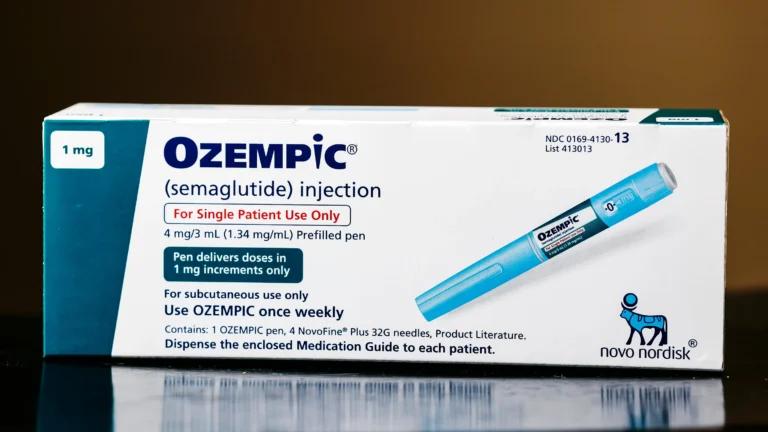

September 17, 2025 (Current Version)
March 28, 2025
Dementia is a general term for a decline in mental ability due to disease or injury. Dementia affects memory, thinking, language, judgment and behaviour. It is severe enough to affect a person’s ability to perform everyday activities. As we age, it’s normal to lose some neurons in the brain. People living with dementia however, experience far greater loss.
There are many different types of dementia some of them include:
- Alzheimer’s Disease
- Vascular Dementia
- Dementia with Lewy bodies
- Frontotemporal dementia
- Mixed dementia
- Huntington’s disease
- Creutzfeldt-Jakob disease
- Normal pressure hydrocephalus
Each type has different symptoms and causes. Depending on the area of the brain that’s damaged. Dementia can affect people differently and cause different symptoms. Let’s take a closer look at each one.
Alzheimer’s Disease
Alzheimer’s is the most common form of dementia. It usually develops in older people over the age of 65. Alzheimer’s disease is a type of dementia that causes problems with memory, thinking and behaviour. Symptoms usually develop slowly and get worse over time, becoming severe enough to interfere with daily tasks.
Alzheimer’s disease is the most common cause of dementia, accounting for 60-80% of all cases. Although there is no one test that can definitively diagnose Alzheimer’s disease, doctors can use a variety of tools to assess a person’s symptoms and rule out other possibilities. Early diagnosis is important, as it allows people to receive treatment and support that can improve their quality of life. Symptoms of Alzheimer’s disease may include:
- Memory loss which disrupts daily life
- Challenges in planning or problem-solving
- Difficulty completing familiar tasks at home, at work or at leisure
- Confusion with time, place or recalling recent events
- Trouble understanding visual images and spatial relationships
- New problems with words in speaking or writing
- Misplacing things and losing the ability to retrace steps
- Decreased or poor judgment
- Withdrawal from work or social activities
Early-onset Alzheimer’s disease is a form of dementia that affects people under the age of 65. It is a progressive condition that leads to cognitive decline, including memory problems. Early-onset Alzheimer’s disease is relatively rare, accounting for only 5-10% of all cases of Alzheimer’s disease. However, it often has a more severe course than later-onset Alzheimer’s disease patients may experience a rapid decline in function. While Alzheimer’s disease can be difficult for anyone to deal with, it can be especially challenging for younger people who are still working and raising families. Early-onset Alzheimer’s disease can also be financially burdensome, as it often leads to early retirement. The impact of Alzheimer’s disease goes beyond the person with the diagnosis. Family members and loved ones also feel the effects of this disease.
The cause is unknown but may be related to a combination of genetic, lifestyle and environmental factors. There is no current cure but treatments can help with symptoms.
Vascular Dementia
Vascular Dementia is the second most common type of dementia after Alzheimer’s disease, typically in those over 65. It occurs when there is damage to the vessels that supply blood to the brain. This can lead to a reduction in the amount of oxygen and nutrients that reach the brain, which can eventually cause brain cells to die. The most common symptoms of vascular dementia include problems with memory, cognition and communication. Other common symptoms include changes in mood and behaviour, impaired motor skills and sleep disturbances. In some cases, people with vascular dementia may also experience hallucinations or delusions. Early diagnosis and treatment can often help to improve symptoms and slow the progression of the disease.
Dementia with Lewy Body
Lewy body dementia (LBD) is one of the most common types of progressive dementia after Alzheimer’s disease and Vascular Dementia in those aged 50 or older. LBD occurs when abnormal deposits of a protein called alpha-synuclein build up in nerve cells in the brain regions responsible for thinking, memory and movement control (the frontal and temporal lobes). There are treatments available to help manage some symptoms, but there is no cure for LBD at this time.
The symptoms of dementia in LBD include:
- Visual Hallucinations: People with LBD may see, hear or feel things that are not there. For example, they may see a loved one who has died or hear music playing when there is none
- Fluctuations in alertness and attention: A person with LBD may be alert and aware at one moment and then drowsy and confused the next
- Problems with movement: A person with LBD may have trouble moving or speaking. They may shuffle when they walk, freeze in place or repeat words or phrases. Parkinson’s disease-like physical symptoms such as rigidity and slowness of movement and instability when standing or walking
- Psychotic symptoms: Psychotic symptoms can include paranoia, delusions and hallucinations
- Sleep disorders: People with LBD often have trouble sleeping and may experience vivid dreams
- Changes in behaviour: A person with LBD may become agitated, anxious, or depressed. They may also have problems controlling their impulses
- Cognitive impairment: A person with LBD may have trouble with memory, decision-making, and planning
In the early stages of the disease, these changes may be mild and hard to notice. As the disease progresses, it will become more severe.
Frontotemporal Dementia
Frontotemporal dementia (FTD) refers to a group of disorders caused by degeneration of the frontal and temporal lobes of the brain – the parts of the brain generally associated with personality, behaviour and language skills. Typically diagnosed in people aged between 45-64.
The most common early symptom of FTD is behaviour and personality change. This may be a significant change from the person’s normal behaviour or personality. For example, a normally quiet person may become excessively talkative or a normally tidy person may become disorganised and messy. Personality changes can be subtle at first and may not be noticeable to family and friends. As the disease progresses, the changes can become more pronounced and can cause problems at home, work or school.
Language problems are also common in FTD. A person with FTD may have trouble finding the right words to say or may say things that sound bizarre or inappropriate. The person may also have trouble understanding what others are saying. Changes in language ability can make it hard to hold a conversation or follow a story on television.
Most people with FTD will experience a decline in cognitive abilities, although the rate of decline can vary from person to person. Common problems include trouble with planning and organising, difficulty with decision-making and impaired judgment. As FTD progresses, people may have trouble taking care of themselves and performing basic tasks such as dressing and bathing. People with FTD often know they are having difficulty, but are unable to do anything about it. Ultimately, FTD can lead to a complete loss of self-care skills and the ability to communicate.
The causes are mostly unknown but research suggests it could be a combination of genetic vulnerability and exposure to environmental toxins. There are treatments available to help manage some symptoms, but there is no cure for FTD at this time. Treatment focuses on relieving symptoms and supporting caregivers.
Mixed dementia
Mixed dementia is a term used to describe a condition where someone has features of more than one type of dementia. The most common type of mixed dementia is Alzheimer’s disease and vascular dementia. Mixed dementia can often be difficult to diagnose because the symptoms can overlap. People with mixed dementia may experience problems with language, judgment and executive function (the ability to plan and organise). They may also have difficulty with activities of daily living, such as bathing and dressing. In addition, people with mixed dementia may show signs of depression or anxiety. Treatment options for mixed dementia are similar to those for other types of dementia and may include medication, therapy and lifestyle changes.
Huntington’s Disease
Huntington’s disease is a progressive brain disorder that affects a person’s ability to think, feel and move. The disease is caused by a mutation in a gene that makes a protein called huntingtin. This protein is found throughout the body, but is especially important for brain cells. The mutation causes the huntingtin protein to become abnormal and damaged. Huntington’s disease usually develops in adulthood, but it can also occur in childhood. Symptoms of Huntington’s disease can include changes in mood and personality as the disease progresses. These symptoms become more severe and may include involuntary movements impaired speech, impaired mobility and dementia.
Creutzfeldt-Jakob disease
Creutzfeldt-Jakob disease (CJD) is a rare degenerative brain disorder. It is caused by an abnormal protein called a prion. Prions are found in the nervous system tissue of CJD patients. They are believed to cause the destruction of nerve cells in the brain. Signs and symptoms of CJD typically appear suddenly and progress rapidly. They may include dementia, delusions, hallucinations, memory loss, weakness, paralysis, impaired speech and vision. Most people with CJD die within one year of diagnosis. There is no known cure for CJD. However, treatment can help to manage symptoms and improve quality of life.
Normal pressure hydrocephalus
Normal pressure hydrocephalus (NPH) is a medical condition in which excess cerebrospinal fluid (CSF) accumulates in the brain’s ventricles, causing the brain to swell. The excessive accumulation of CSF often results in increased pressure on the brain, which can lead to a variety of neurological symptoms, including difficulty walking, incontinence and dementia. Although NPH can occur at any age, it is most common in older adults.
Risk factors for dementia
There are some risk factors for dementia that we can’t change, such as our age, family history and certain health conditions such as diabetes, high blood pressure and high cholesterol. However, there are some lifestyle choices we can make to help reduce our risk. For example, smoking cigarettes has been linked to an increased risk of dementia, so quitting smoking is one way to help lower your risk. Eating a healthy diet and maintaining a healthy weight is also important, as obesity has been linked to an increased risk of developing dementia. Getting regular exercise has also been shown to help reduce the risk of developing dementia. So maintaining a healthy lifestyle with regular exercise and a healthy diet is important for brain health. Even though we can’t change all of the risk factors for dementia, there are still some things we can do to help lower our risk.
Dementia is not a single condition, but rather an umbrella term used to describe various diseases and conditions that lead to a decline in cognitive function. If you or someone you love has been diagnosed with dementia, it’s important to seek out support and resources so you can better understand the condition and how it will progress. There are many organisations, such as the Alzheimer’s Association and support groups available to help people living with dementia and their carers. Don’t hesitate to reach out for help if you need it.
Sources
- About Dementia – Alzheimer’s
- What is Dementia – NIA
- Dementia – NHS
- Understanding Different Types of Dementia – NIA
Medical Disclaimer
NowPatient has taken all reasonable steps to ensure that all material is factually accurate, complete, and current. However, the knowledge and experience of a qualified healthcare professional should always be sought after instead of using the information on this page. Before taking any drug, you should always speak to your doctor or another qualified healthcare provider.
The information provided here about medications is subject to change and is not meant to include all uses, precautions, warnings, directions, drug interactions, allergic reactions, or negative effects. The absence of warnings or other information for a particular medication does not imply that the medication or medication combination is appropriate for all patients or for all possible purposes.








